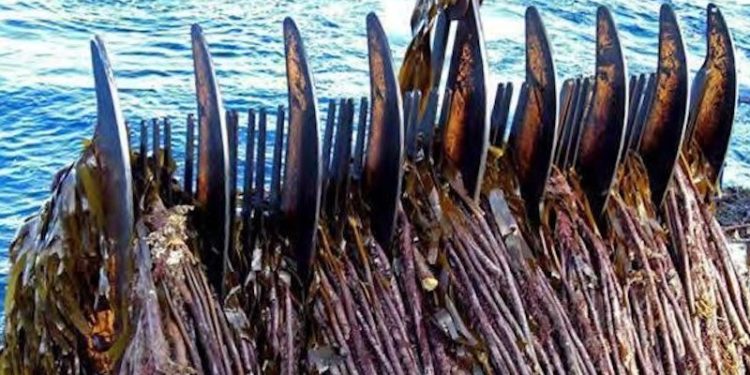A petition to the Scottish government is circulating, spelling out the opposition to an application by Ayr-based Marine Biopolymers to dredge for wild kelp in areas off the west of Scotland. The petition is strongly supported by the Scottish Creel Fishermen’s Federation, which is urging people to sign.
According to the Scottish Creel Fishermen’s Federation, kelp dredging is currently not allowed in Scotland, and a scoping report has been submitted to Marine Scotland with a view to obtaining permission to dredge for kelp off the west of Scotland coast.
Marine Bioplymers states that they are in a good position to operate in Scottish waters, and harvesting will always be ‘well within sustainable limits in relation to the naturally occurring stocks.’
‘Our future seaweed harvesting methodology, which has been developed in close co-operation and consultation with heritage and other environmental bodies, as well as with experts linked to Queen’s University Belfast ensures that no harvesting area will be visited too often, that varying and appropriate methods are used for each seaweed species to promote good recovery, and that sensitive fauna regions are avoided altogether,’ the company states.
The Creel Fishermen’s Federation and others are not in agreement with this viewpoint, arguing that the current kelp hand harvesting licenses specify that the holdfast, stipe (stalk), and a large part of the frond are left intact to allow the plant to regenerate.
‘Dredging uses a large toothed metal head to rip the entire plant from the seabed, taking the holdfast, stipe, and all the life that is attached to it, the holdfast is cut off and lobbed it over the side,’ they argue, and take issue with the claim that the kelp habitat is a monoculture, stating that kelp beds support a wide diversity of species.
‘Biodiversity supports our coastal fisheries and communities, it supports business. They are not two separate things. Biodiversity supports traditional shellfish and pelagic fisheries, wildlife watching, ecotourism, and marine based outdoor activity businesses,’ they state, pointing out that in countries where dredging for kelp is underway impacts on the environment and economy are only beginning to be understood.
‘In areas of North America where the predators of the sea urchin have disappeared with the kelp, the urchin numbers have boomed and ‘over grazed’ preventing the re-establishment of the kelp forest,’ they claim, and quote further studies from Norway and Nova Scotia.
‘Kelp farmed. It is farmed in Norway, the Faroes and at Rathin Island between Ireland and Scotland,’ the petitioners state. ‘If alginate companies want kelp they must invest time in researching how they can make farming viable for them. Dredging the wild beds must never be an option.’
The petition can be found here.









